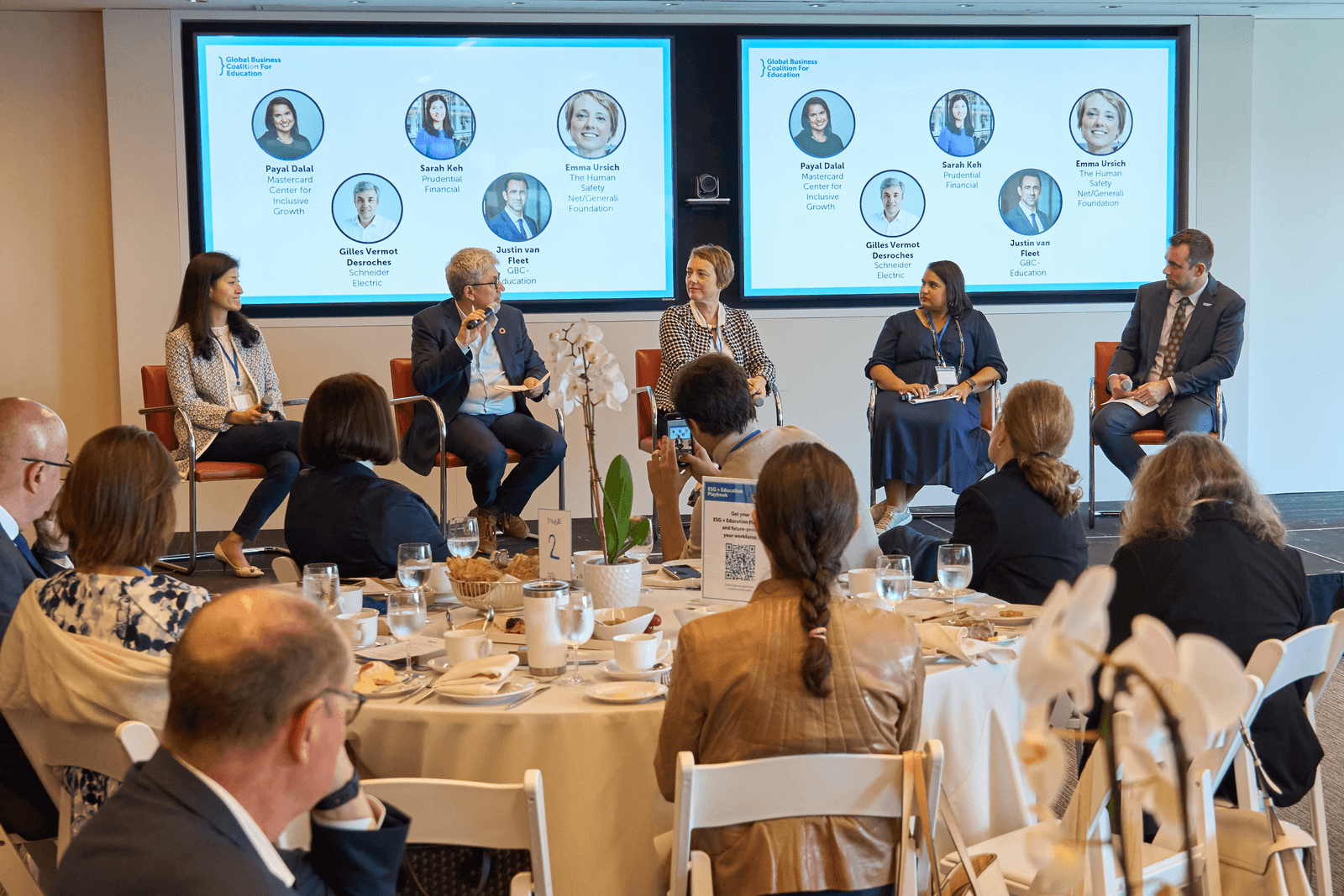The Human Safety Net joined the Global Business Coalition for Education, an initiative of the global children’s charity Theirworld, the Coalition leverages the collective power of business, government, international organizations, NGOs, youth, and other stakeholders to achieve the Sustainable Development Goal of free, equitable, and inclusive quality education for all.

Act for Early Years
This September, The Human Safety Net participated in a series of annual events during the United Nations General Assembly week in New York. Besides participating in a panel discussion organised by the Global Business Coalition for Education titled 'From Early Childhood to the Climate Crisis: Leveraging Education to Create Shared Value', The Human Safety Net endorsed Act for Early Years. Promoted by Theirworld, the Act for Early Years is a broad international campaign of frontline workers and experts, youth and business leaders, media, and civil society to ensure a decade of action and increased financial support for the early years.
Global Business Coalition for Education recently featured The Human Safety Net, along with the LEGO Group, Patagonia and Ella’s Kitchen, as an original case study in their report, 'Business Case for Investment in the Early Years.'
Based on research worldwide, this report makes an urgent case: The business community needs to broaden its focus on young children to help transform their education and their health, employability, and all-around contribution to their communities and the wider world.
Enhancing Financial Literacy for Families: Insights from Italy and Indonesia
One part of the case study examined our Financial Education project, part of the For Families programme. Across the globe, a significant segment of adults grapples with financial literacy, with young parents in low-income brackets exhibiting the lowest levels of financial knowledge. Financial constraints often impede these individuals' capacity to nurture their children with the care, protection, and stability they deserve.
Recognising this critical issue, The Human Safety Net joined forces with UNICEF and the international NGO Aflatoun, specialising in social and financial education. The findings of our joined study shed light on a crucial gap: while numerous parenting programmes focus on nutrition, health, and caregiving, there needs to be more financial education initiatives tailored to these vulnerable families' specific needs.
In response, The Human Safety Net took the initiative in 2021 to launch a pilot programme in Italy and Indonesia. This pilot aimed to gauge the integration of financial literacy modules into existing parenting programs within distinct socio-cultural contexts. Collaborating with Aflatoun and UNICEF, we developed and implemented specialised modules covering saving, effective budgeting, and responsible borrowing.
Lifted by the success of the initial phase, we are expanding the programme's reach. The initiative has been introduced to four additional countries (Germany, France, Spain and Poland). At the same time, the project in Italy has been extended. This expansion seeks to empower more vulnerable families worldwide with the financial skills necessary to build a more secure future for themselves and their children.


